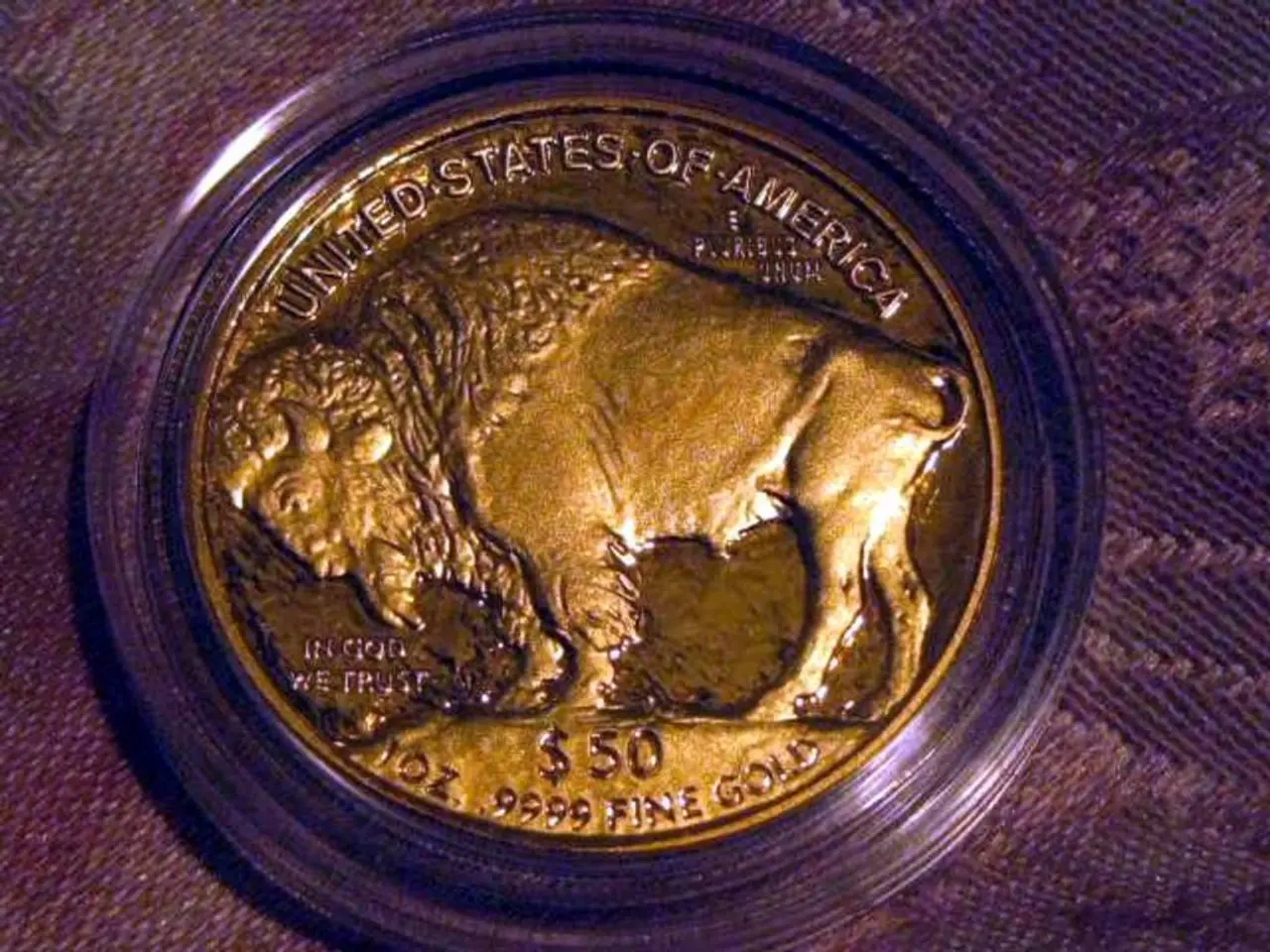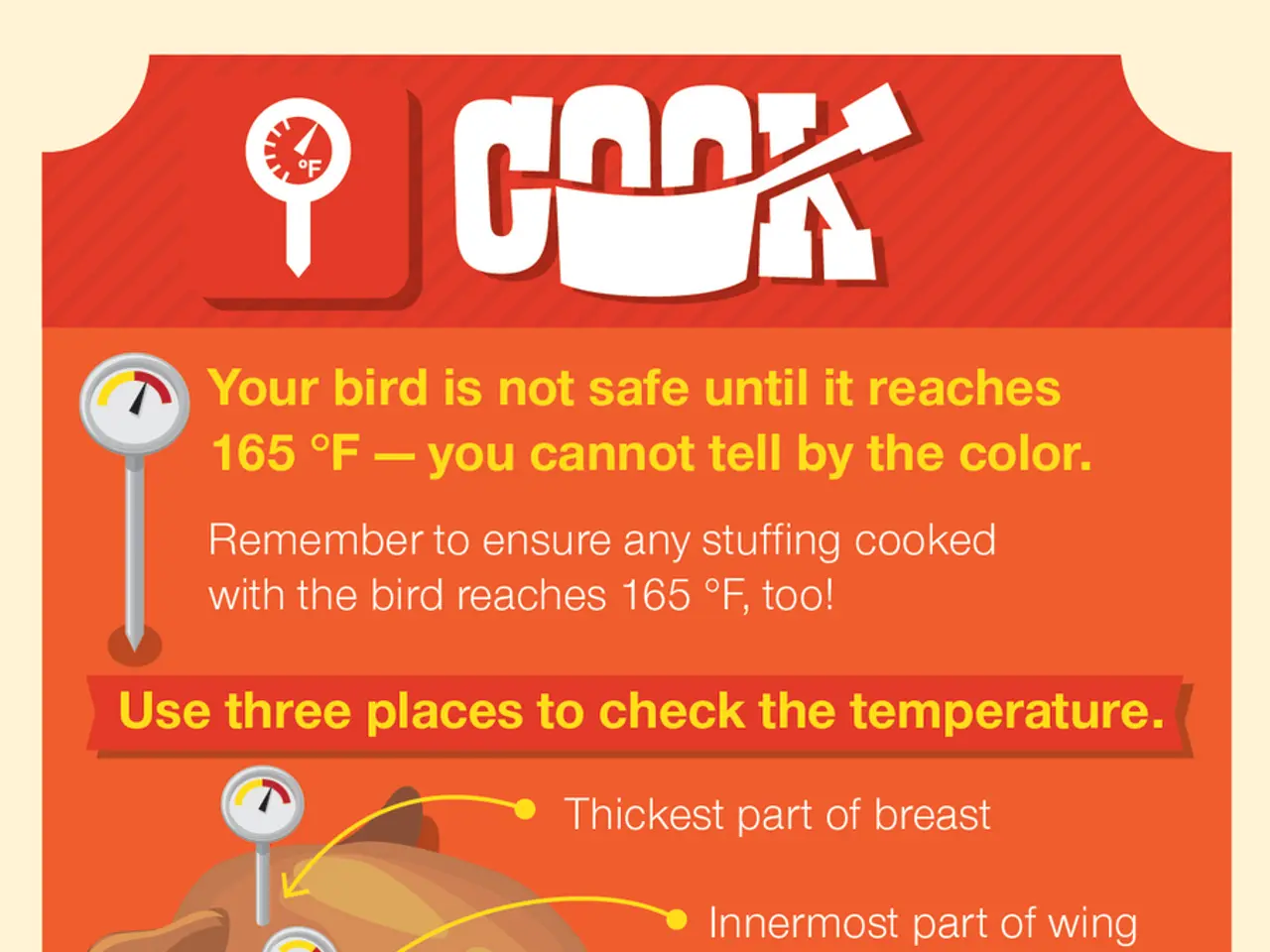Trump Backs Away from Fed Chair Powell as Central Bank Maintains Rates
Fed maintains interest rate stability - President Trump labels Fed Chair Powell as 'fool' - Fed's Monetary Policy Remains Unaltered - Trump Publicly Criticizes Fed Chair Powell as "Foolish"
The Fed recently declared that while uncertainty about the economy's future has decreased, it's still prevalent. Powell, the Fed chair, informed reporters that the Fed anticipates Trump's trade policies to slow growth and escalate expenses for consumers, though these effects haven't hit American consumers yet. Powell stated, "Tariffs take time to work their way through the supply chain and reach the end consumer."
Trump, formerly dubbing Powell a "stupid person," has expressed a desire for the Fed to lower interest rates. He asserts that lower rates would boost investments and economic growth. "Our economy thrives, and there's zero inflation; I'd love to see interest rates decrease," Trump reiterated.
For months now, Trump has been egging on Powell and even suggested firing him, casting doubt on the central bank's independence, a fundamental principle of its operations.
Remarks from the White House
Trump has been relentless in calling for the Fed to slash interest rates, believing they would benefit the economy and allow the U.S. to outshine nations like China. Trump's harsh criticisms have extended to labeling Powell as a "major loser" for refusing to bow to his will and decrease rates[2][3][4]. Trump’s rude remarks contributed to market upheaval, causing declines in stock markets and fluctuations in Treasury yields and the dollar's value[2].
The Fed vs. Political Pressures
Despite Trump's demands, Powell and the Fed have upheld their independence, with interest rate decisions based on economic data and non-political analysis, aimed at securing maximum employment and price stability. Powell guaranteed that the Fed's policy direction hinges solely on incoming economic data and that monetary policy decisions won't be tainted by political considerations[2][3].
Powell has resisted reductions in rates, concerned that premature reductions could rekindle inflation, which had recently neared the Fed's 2% target. The Fed kept interest rates high throughout much of Trump's presidency to stem inflation, despite Trump's preference for lower rates to stimulate growth[3].
Legally, the Fed chair is shielded from being removed at the president's discretion, a status upheld by a Supreme Court ruling solidifying the Fed's independence from the White House[2].
Implications for the Economy
This testy relationship between Trump and Powell has highlighted the friction between political pressures and central bank autonomy. The Fed's adherence to data-driven monetary policy shielded the U.S. economy from politicized interest rate alterations, which fortified inflation expectations and market confidence during an era of political uncertainty surrounding the Fed chairmanship. However, Trump's public feuds with Powell fueled market anxiety and illustrated the challenges of maintaining Federal Reserve independence in a politically charged environment[1][2][3][4].
- Donald Trump
- Jerome Powell
- United States President
- Federal Reserve System
- Interest Rate
Donald Trump's relentless calls for the Federal Reserve to lower interest rates, coupled with his harsh criticisms towards Jerome Powell, the Fed chair, have fueled market anxiety and highlighted the friction between political pressures and central bank autonomy.
Jerome Powell's policy direction for the Federal Reserve has been based on economic data and non-political analysis, a stance aimed at securing maximum employment and price stability.
Despite legal protections, Donald Trump has attempted to sway the Federal Reserve's decision-making process, casting doubt on the central bank's independence, a fundamental principle of its operations.






